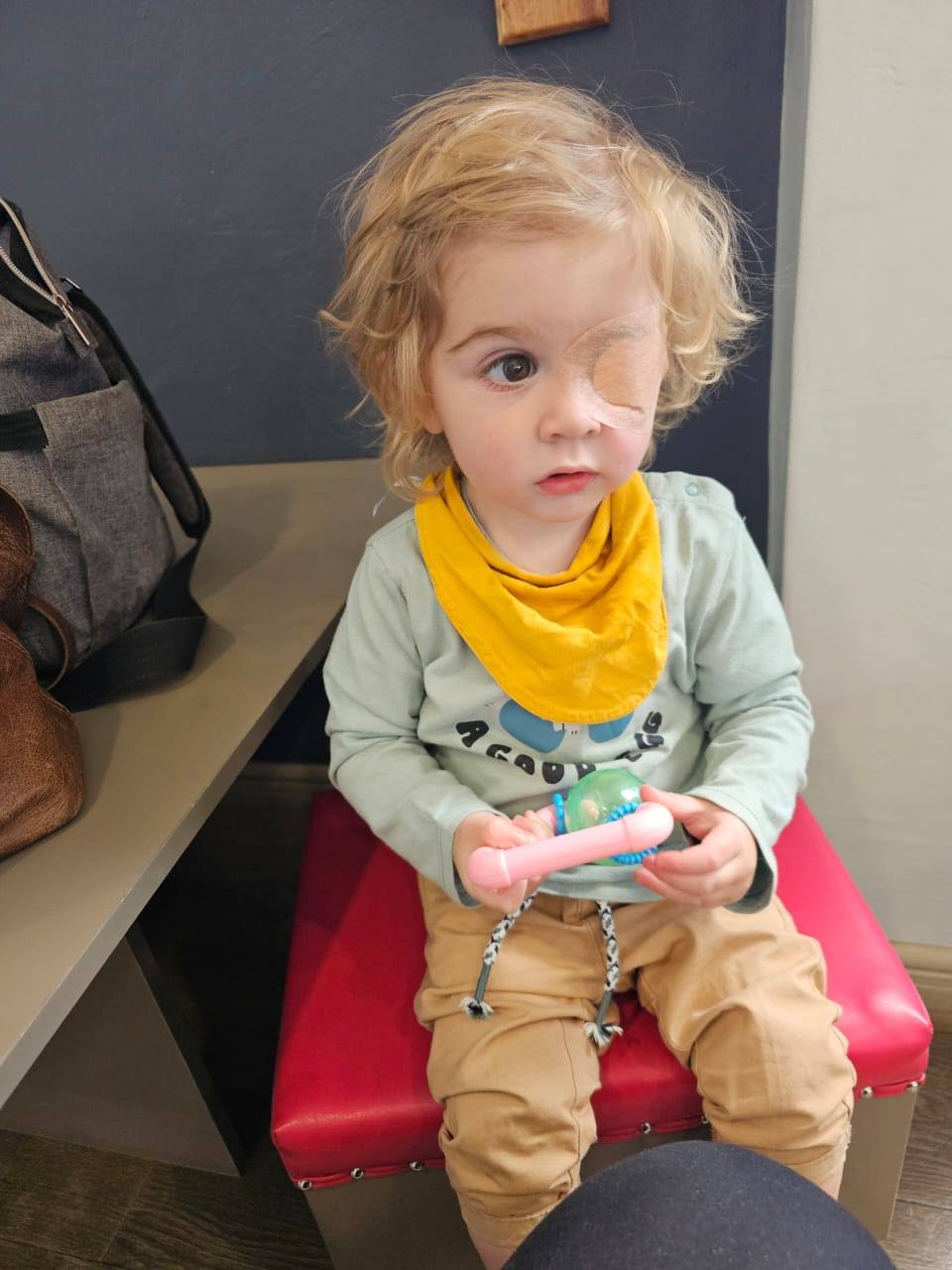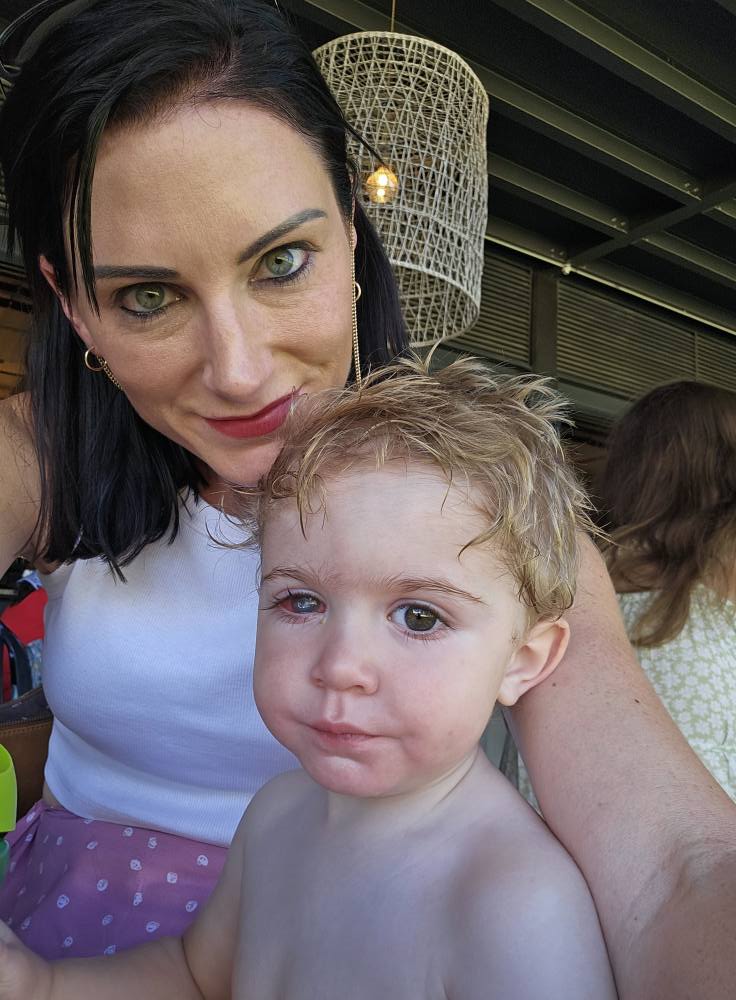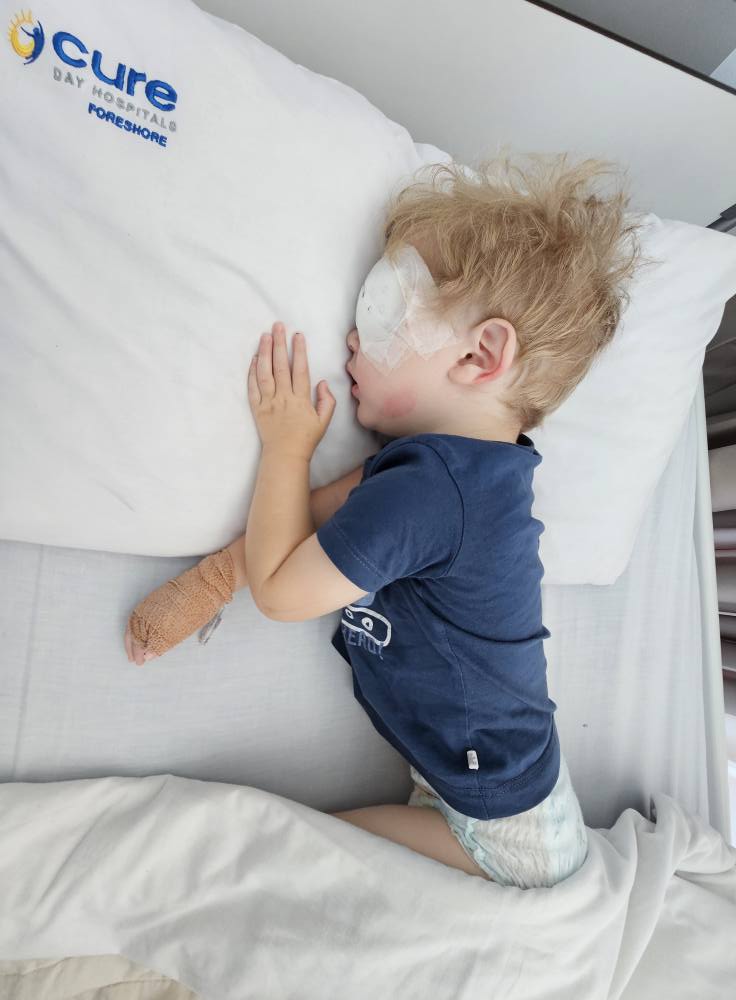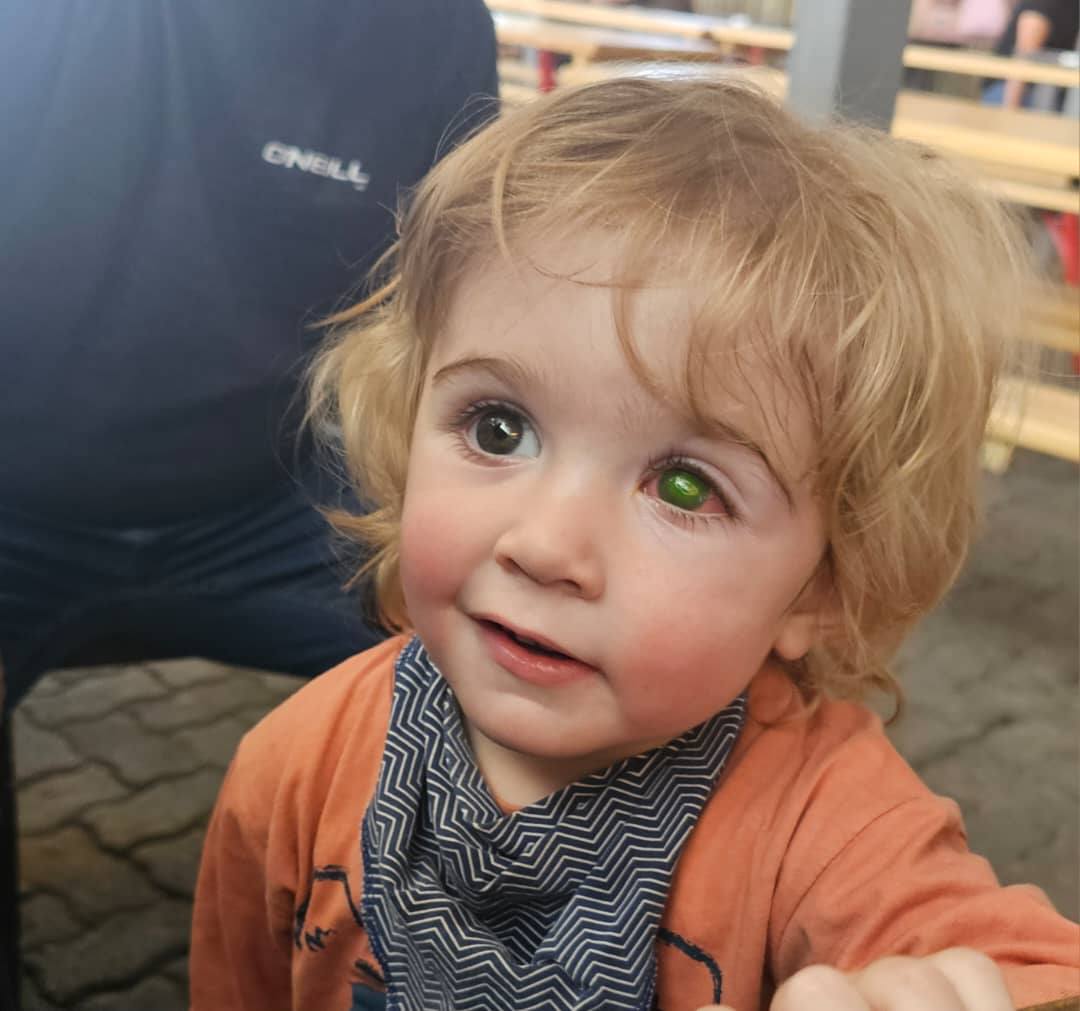A two-year-old boy’s vision was destroyed after someone with a cold sore kissed him near his eye. Now his parents are warning others about the hidden dangers of herpes simplex virus.
An Unseen Risk With Life-Changing Consequences
A kiss on the cheek is usually seen as a harmless sign of affection. But for two-year-old Juwan Saaiman, it changed everything. After being kissed by someone with an active cold sore, Juwan contracted herpes simplex virus type 1 (HSV-1) in his eye. The result: complete loss of vision in his left eye, and a long road of surgeries and lifelong treatment ahead.

Juwan’s mother, Michelle Saaiman, said she was shocked when doctors told her a herpes virus was the cause.
“The doctor was telling me there’s a fever blister growing in my child’s cornea,” she told Metro. “I was literally looking at the doctor wondering whether it’s April 1, because I thought it was an April Fool’s joke.”
From Mild Symptoms to Permanent Damage
In August of last year, when Juwan was just 16 months old, his parents noticed redness and irritation in his eye. At first, it looked like a routine infection. Their local doctor prescribed antibiotic drops, but his condition worsened quickly.
Two days later, Michelle noticed something alarming. Juwan wasn’t responding to touch in the affected eye.
“We realized that he had no feeling in his eye, as he literally put his finger in his eye, scratching his eyeball, without even flinching,” she said.

At the hospital, further tests revealed the cause: HSV-1 had infected his eye, a condition known as herpes simplex keratitis. This viral infection attacks the cornea—the clear layer at the front of the eye—and can lead to inflammation, ulcers, and vision loss. By the time treatment began, the virus had already caused irreversible damage.
“By that time the herpes just caused so much damage to his cornea that he essentially just lost all feeling in the eye and he could not see anything. He was completely blind,” Michelle said.
Medical Response and Severe Complications
Once the diagnosis was confirmed, doctors had to consult specialists in New York to source the right antiviral medication. But the damage progressed rapidly. As Juwan lost sensation in the eye, the gel-like layer protecting it evaporated, and the eye dried out. This led to a 4-millimeter hole in his cornea.
The open wound made his eye vulnerable to further infections. To protect what remained of the organ, doctors stitched his eyelids shut and performed amnion graft surgery to help the surface begin to heal.
Michelle and her husband Neels, who are both HSV-negative, were devastated to learn the virus had likely been passed to their son through a kiss from someone with an active cold sore.
“Initially, we were really, really angry,” Michelle said. “Both my husband and myself, we were just angry with whoever was so selfish to kiss my child in his face with an active fever blister.”
What Is Herpes Simplex Virus Type 1?
HSV-1 is a highly common virus. According to the World Health Organization, an estimated 3.7 billion people under age 50 are infected globally. In adults, it typically causes cold sores—small blisters that appear around the mouth.
The virus is spread through direct contact. Kissing, touching, sharing utensils, or using the same towel as someone with an active cold sore can lead to transmission. In healthy adults, outbreaks tend to be mild. But in babies and toddlers, whose immune systems are not fully developed, HSV-1 can be far more dangerous.
When the virus enters the eye, it can cause ocular herpes, which includes:
- Redness and swelling
- Eye discharge
- Sensitivity to light
- Blurred vision
- Eye pain or discomfort
- Ulceration of the cornea
If left untreated, it can lead to corneal scarring, vision impairment, and blindness.
A Long and Uncertain Road Ahead
The Saaimans are now preparing for a complex nerve transfer operation in South Africa. Doctors hope to reconnect the nerves from Juwan’s leg to his eye to restore neurological communication. If successful, he may become eligible for a corneal transplant next year.
But there are no guarantees.
“Whether any vision can ever be restored is unknown at this stage,” Michelle said. “We have made peace with the fact that he could very well be permanently blind in his left eye.”
The immediate goal, she said, is simply to save the eye and prevent future infections.
Juwan will also need to take antiviral medication for years to come to keep the virus in check.
The family, based in Namibia, has faced high medical bills and travel costs. They’ve had to fly to Cape Town multiple times, and have launched a fundraiser to help cover the cost of care and upcoming procedures.
Why This Can Happen to Any Family
Juwan’s case is rare but not isolated. Infections like this happen more often than people realize. One key factor is how casual attitudes around cold sores can lead to unintentional risks.
“The herpes virus could, most likely, only have been transferred by someone who had an active blister, kissing our baby on, or close to the eye, or on his hand — which he later touched his eye with,” Michelle said.
Her message to other parents is clear: Do not let anyone kiss your baby, no matter how well-intentioned they may be.
“This is something that I’ve read a thousand times, but we’ve never really been too bothered about it — I mean, what’s the worst that can happen, right? Wrong. I was so wrong.”
Preventing HSV-1 Transmission in Babies and Children
Because HSV-1 is so common, it’s easy to overlook its risks. But Juwan’s story shows how quickly a common virus can cause lasting damage in a vulnerable child.
Experts recommend the following to protect young children:
- No kissing during outbreaks
If you have a visible cold sore, do not kiss babies or toddlers, even on the cheek or forehead. - Practice good hygiene
Wash hands often—especially after touching your face or applying ointment to a cold sore. - Don’t share utensils or towels
Avoid letting children use items that might be contaminated with saliva, such as cups, spoons, or face cloths. - Educate caregivers
Make sure babysitters, grandparents, and family friends understand the risk of HSV-1, even if they’ve never had symptoms themselves. - Watch for symptoms
HSV-1 in babies can present without a visible rash. Symptoms may include:
- Lethargy
- Poor feeding
- High fever
- Irritability
- Seizures (in rare cases)
- Lethargy
If a child shows signs of HSV infection, contact a doctor immediately. In severe cases, especially in infants under four weeks old, the virus can lead to systemic infection, brain inflammation, or death.

Final Thoughts: Awareness Can Save Lives
Juwan’s parents have chosen to speak publicly in the hope that other families will never have to endure what they have.
“Kisses come from a place of love. So whoever gave him this, I’m sure it wasn’t done intentionally,” Michelle said. “But the result has been devastating.”
As common as cold sores are, they are still active viral infections—and the consequences can be severe, especially for young children.
Michelle’s words echo a message worth repeating:
“The moral of the story is: don’t let anyone kiss your baby. Such a silly virus caused so much trauma and damage. It’s just not worth it.”
Featured Image from Facebook: Michelle Saaiman

